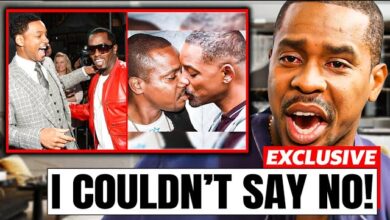Amazon, one of the largest corporations in the world, has found itself under intense scrutiny after quietly removing explicit protections for Black and LGBTQ+ employees from its workplace policies. This shocking decision, uncovered by whistleblowers and workplace advocacy groups, has sparked outrage among employees, activists, and industry observers alike.
The Quiet Change That Caused a Stir
In what many see as a regressive step, Amazon reportedly updated its workplace policies to exclude language that specifically protects Black and LGBTQ+ employees from discrimination and harassment. Previously, policies outlined protections against bias and discrimination explicitly for these marginalized groups. The recent revision now features a more generalized approach to workplace inclusion, which critics say dilutes the importance of safeguarding vulnerable employees.
Employee outrage and fear of retaliation
For many Amazon employees, the removal of these protections feels like a betrayal. “We have worked tirelessly to make Amazon a safe and inclusive space,” said one anonymous employee. “Now, it feels like our voices and safety don’t matter.”
Reports from inside the company indicate a growing sense of fear and unease. Many employees are concerned that this policy change could open the door for discriminatory practices to go unnoticed. Some have already expressed concern about the rise of hostility and microaggressions in the workplace.
Activists speak out
Advocacy groups have wasted no time in condemning Amazon’s decision. The National Black Justice Coalition (NBJC) and the Human Rights Campaign (HRC) issued strong statements criticizing the company’s move, calling it a step backward in the fight for equality in the workplace.
“Amazon has built its reputation on being a progressive company,” said David Johns, executive director of the NBJC. “But actions speak louder than words. Removing explicit protections for Black and LGBTQ+ employees sends a clear message that these communities are no longer a priority.”
Amazon Response
When asked about the policy change, Amazon claimed that its employment standards continue to comply with federal anti-discrimination laws and that it remains committed to diversity and inclusion. However, critics argue that federal protections alone are not enough, as they often fail to address the specific challenges Black and LGBTQ+ employees face in the workplace.
Amazon also emphasized its continued support for employee resource groups and diversity initiatives, but this has done little to calm the backlash.
Broader implications
Removing these protections could have far-reaching consequences for Amazon’s reputation and its ability to attract and retain top talent. The company has long been a leader in promoting diversity in the workplace, but this policy change raises questions about its commitment to equity and inclusion.
Additionally, the move could set a dangerous precedent for other corporations, signaling that protections for marginalized groups are negotiable rather than essential.
What’s next?
Employees and advocacy groups are calling on Amazon to reinstate explicit protections and issue a public apology. Some are even organizing walkouts and protests to draw attention to the issue. Legal experts have also suggested that this policy change could open Amazon up to lawsuits if employees face discrimination or harassment that could have been prevented under previous rules.
The controversy surrounding Amazon’s decision underscores the importance of explicit protections for marginalized groups in the workplace. While the company may claim to support diversity, its actions suggest otherwise, leaving employees and advocates to wonder whether inclusion at Amazon is truly a priority or just a buzzword.






